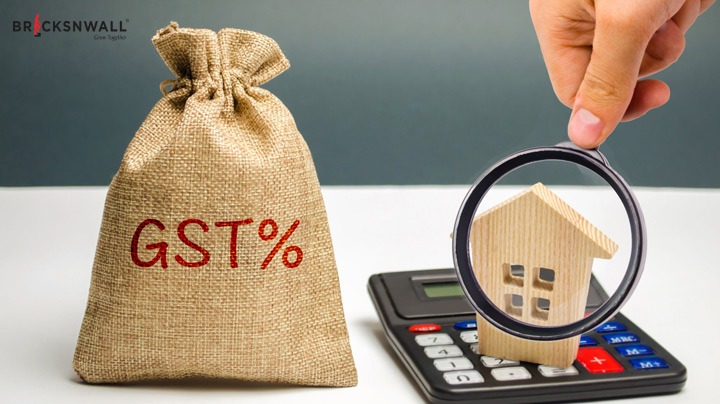GST on Real Estate, Flat Purchase
Bricksnwall Trusted Experts

The
introduction of the Goods and Services Tax (GST) in India has had a significant
impact on various sectors, including real estate. Understanding the
implications of GST on the purchase of flats and real estate properties is
vital for both buyers and sellers.
In
this blog post, we will explore the fundamentals of GST in real estate
transactions, including its applicability, tax rates, and its influence on the
overall cost of purchasing a flat or property.
Understanding
GST on Real Estate:
GST is a
unified indirect tax implemented on the supply of goods and services in India.
When it comes to real estate, GST is applicable to the purchase of
under-construction flats, apartments, and commercial properties. However, it
does not apply to completed properties or ready-to-move-in units.
GST
Rates on Real Estate:
The GST
rates for real estate are determined by factors such as the property type, construction
stage, and the inclusion of affordable housing schemes. Presently, the GST rate
for under-construction residential properties is generally 5%, while affordable
housing projects attract a rate of 1%. However, it is important to note that
these rates are subject to change, and it is advisable to verify the prevailing
rates at the time of purchasing a property.
Impact
on the Cost of Flat Purchase:
The
introduction of GST in
real estate transactions has implications for the overall cost of
purchasing a flat or property. Previously, buyers had to bear multiple taxes
like VAT, service tax, and state-specific charges. With GST implementation,
these taxes have been subsumed into a streamlined taxation process. However,
the GST rate, along with factors such as construction cost, location, and
amenities, collectively influence the final price of the flat. Buyers should
consider the impact of GST on their budget and consult with real estate
professionals or tax advisors to gain a clear understanding of the cost
implications associated with the property purchase.
Input
Tax Credit:
An important
aspect of GST in the real estate sector is the availability of input tax credit
(ITC). Under the GST regime, developers and builders can claim ITC on various
construction-related inputs, including raw materials, services, and other goods
utilized during the construction process. This ITC benefit is aimed at reducing
the tax burden on developers, which may indirectly impact the cost of the
property. Buyers should inquire with the developer about the availability of
ITC and understand how it affects the pricing and overall financial aspects of
the property purchase.
Conclusion:
The implementation of GST has brought significant changes to the real estate sector, particularly in the context of purchasing under-construction flats and properties. Understanding the applicability, tax rates, and implications of GST is crucial for buyers to make informed decisions and plan their budgets effectively. Consulting with real estate professionals and tax advisors will provide buyers with the necessary insights to navigate the complexities of GST and make well-informed investment choices in the real estate market.




